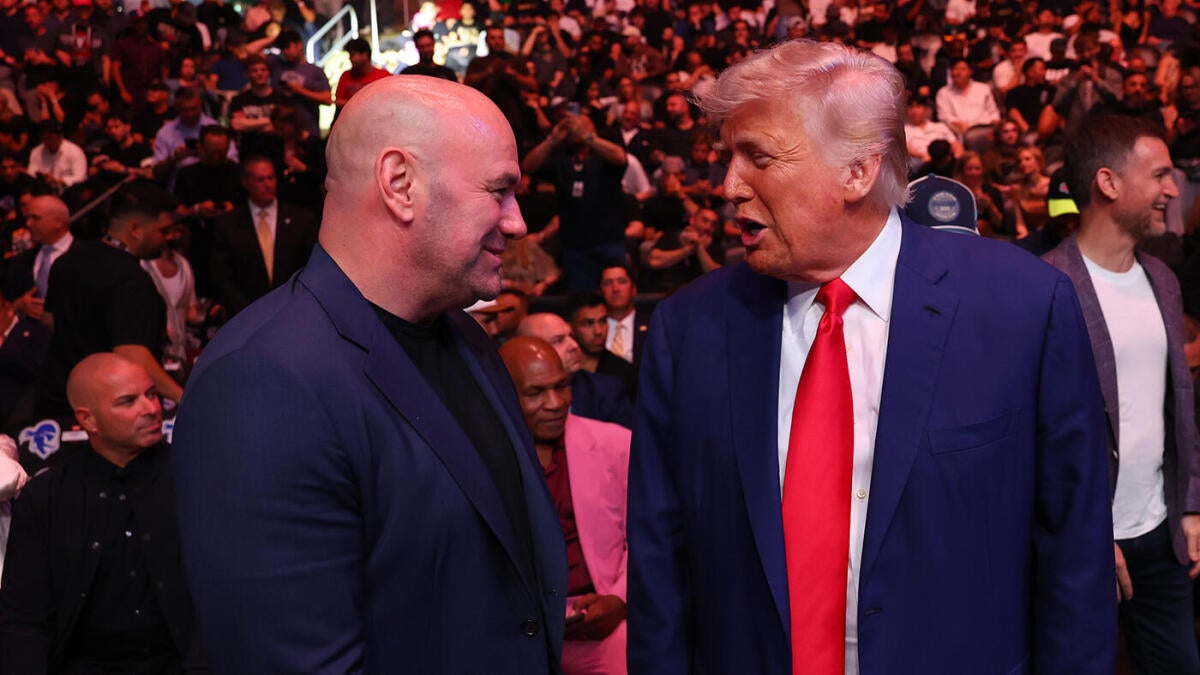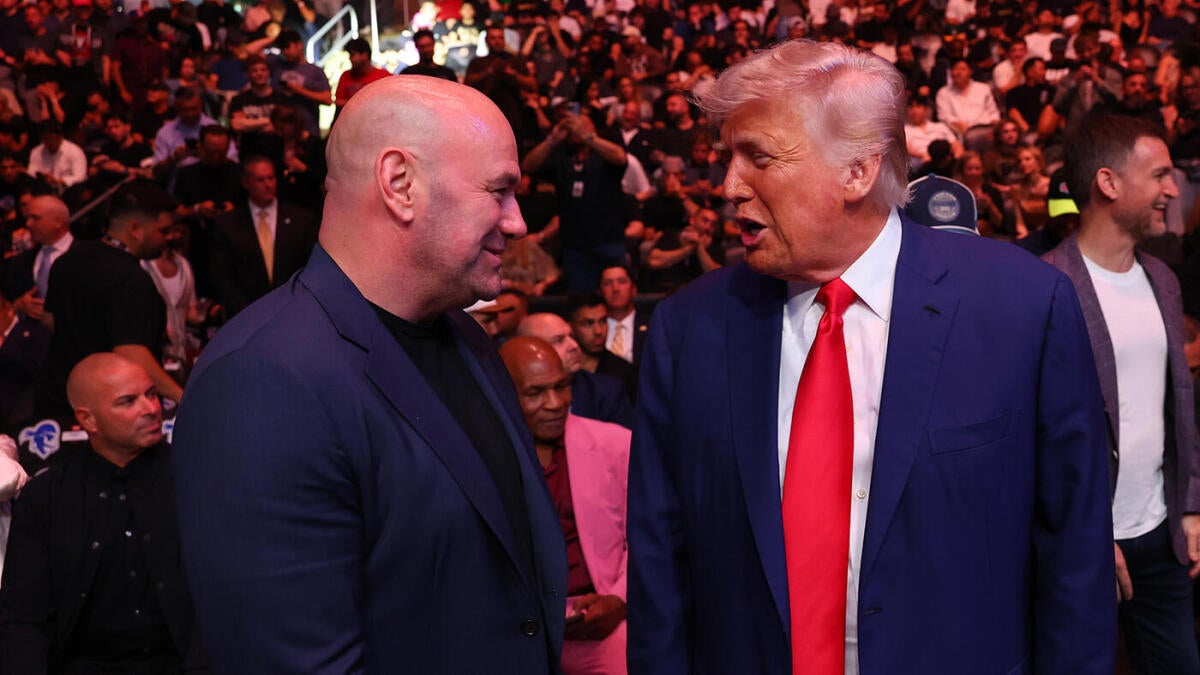The prospect of a UFC fight taking place on the White House lawn is a concept that seems plucked straight from the pages of a political satire novel. Yet, given the unconventional nature of Donald Trump’s presidency and his penchant for spectacle, the idea is not entirely out of the realm of possibility. The proposed event, slated for 2026 as part of the United States’ 250th-anniversary celebrations, has sparked a whirlwind of debate, curiosity, and concern. To fully grasp the implications of this audacious proposal, it is essential to dissect the motivations, challenges, and potential consequences of such an event.
A Strategic Masterstroke or a Political Misstep?
At its core, the idea of hosting a UFC fight at the White House is a masterclass in political branding. Trump has long been a master of leveraging spectacle to capture attention and galvanize his base. The UFC, with its raw, unfiltered energy and appeal to a demographic that values strength and aggression, aligns perfectly with Trump’s political persona. By associating himself with the UFC, Trump reinforces his image as a strong, decisive leader who is unafraid to challenge conventions and disrupt the status quo.
The event also serves as a strategic move to dominate the media narrative. In an era where news cycles are dominated by sensationalism and shock value, a UFC fight at the White House would undoubtedly command extensive coverage. This would allow Trump to shape the national conversation, steering it away from potentially damaging topics and towards a spectacle that plays to his strengths. The sheer novelty of the event ensures that it would be a focal point of discussion, providing Trump with an opportunity to control the narrative and set the agenda for political discourse.
Moreover, the event could serve as a rallying cry for Trump’s base. His supporters have consistently been drawn to his image as a disruptor, a leader who challenges the political establishment and defies conventional norms. Hosting a UFC fight at the White House reinforces this image, projecting an aura of power and a willingness to push boundaries. This can be particularly effective in mobilizing support among demographics that are drawn to the hyper-masculine and aggressive nature of MMA.
The UFC’s Role: A Symbiotic Relationship
The UFC’s involvement in this proposal is not merely coincidental. The organization, under the leadership of Dana White, has long enjoyed a close relationship with Trump. White has been a vocal supporter of the former president, appearing at rallies and publicly praising his leadership. This existing rapport makes the collaboration on a White House fight card a logical, albeit unconventional, extension of their established alliance.
For the UFC, the event represents an unparalleled opportunity for exposure and mainstream acceptance. The organization has consistently sought to elevate its status from a niche sport to a mainstream entertainment powerhouse. Hosting a fight at the White House, a symbol of American power and influence, would be a significant milestone in this journey. It would not only attract a global audience but also lend an air of legitimacy to the sport, further solidifying its position as a major player in the world of sports and entertainment.
However, the UFC must also consider the potential risks associated with the event. The organization has worked tirelessly to shed its image as a brutal, unregulated sport and to position itself as a mainstream entertainment entity. Hosting a fight at the White House, a location steeped in historical significance, could either elevate the UFC’s status or tarnish its reputation, depending on how the event is perceived by the public.
Navigating the Logistics and Optics
The logistics of transforming the White House into a suitable venue for a UFC fight are considerable. The presidential residence is already one of the most heavily guarded locations in the world, and adding the complexities of a large-scale public event would require a significant security overhaul. Ensuring the safety of attendees, staff, and the president himself would be a paramount concern. The event would likely necessitate the deployment of additional security personnel, the implementation of stringent access controls, and the establishment of a comprehensive emergency response plan.
Beyond security, there are also concerns about the historical preservation of the White House. The building is a national treasure, and any alterations or modifications required to accommodate the event would need to be carefully considered to avoid damaging its historical integrity. Protecting the building and its surroundings from the wear and tear associated with a UFC fight would be a major undertaking. This could involve the installation of temporary structures, the reinforcement of existing infrastructure, and the implementation of measures to minimize the impact on the building’s fabric.
The optics of the event also present a significant challenge. While the event is likely to appeal to Trump’s base, it could also alienate more moderate voters and those who view the White House as a symbol of national unity and dignity. The idea of hosting a violent sporting event at such a revered location could be perceived as disrespectful or inappropriate. This could potentially damage the White House’s image as a symbol of American democracy and unity, replacing it with an image of crass commercialism and political grandstanding.
Potential Participants: Elevating the Event’s Profile
One of the most intriguing aspects of the proposed event is the speculation surrounding potential fighters. Conor McGregor, the UFC’s biggest star, has already expressed his enthusiasm for the idea, tweeting that he would be “honoured” to participate. McGregor’s involvement would undoubtedly elevate the event to unprecedented levels of mainstream attention. His flamboyant personality, unmatched fighting skills, and global appeal would make him a major draw for both hardcore MMA fans and casual viewers.
However, McGregor’s history of controversial behavior, both inside and outside the octagon, could also raise concerns about the appropriateness of his participation in an event hosted at the White House. McGregor has a reputation for his outspoken and often provocative comments, which could potentially overshadow the event and draw unwanted attention. The UFC and the White House would need to carefully consider the potential risks associated with McGregor’s involvement and weigh them against the benefits of having such a high-profile fighter on the card.
Beyond McGregor, there are numerous other potential fighters who could be considered for the event. The UFC is home to a diverse roster of talented athletes, representing a wide range of fighting styles and nationalities. Selecting the right matchups would be crucial to ensuring that the event is both entertaining and competitive. The fighters chosen for the event would not only need to be skilled and entertaining but also aligned with the event’s broader political and symbolic goals.
Conclusion: A High-Stakes Gamble
Trump’s proposal to host a UFC fight at the White House is a bold and audacious move that reflects his unconventional approach to politics and his affinity for spectacle. While the event could offer significant benefits in terms of solidifying support, dominating media coverage, and satisfying personal interests, it also presents considerable challenges and risks.
The logistics of transforming the White House into a suitable venue for a UFC fight are complex, and the potential for negative public perception and political fallout is significant. Ultimately, the success of the event will depend on Trump’s ability to navigate these challenges and to ensure that the event is perceived as a celebration of American independence, rather than a crass attempt to exploit the presidency for personal gain.
Whether the octagon ultimately lands on the White House lawn remains to be seen. However, the very proposal underscores the enduring power of spectacle in contemporary politics and the increasingly blurred lines between entertainment and governance. The event, if it materializes, will undoubtedly be a spectacle unlike any other, a true collision of worlds that will leave a lasting mark on both the political and sporting landscapes. It’s a high-stakes gamble, one that could either solidify Trump’s legacy as a disruptor or tarnish the image of the White House in the eyes of many. The nation, and the world, will be watching.












